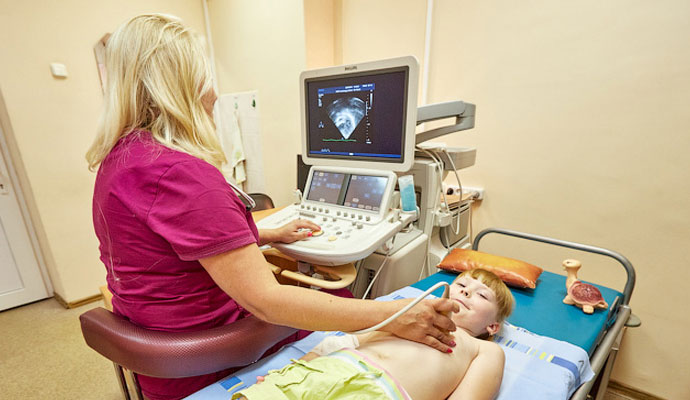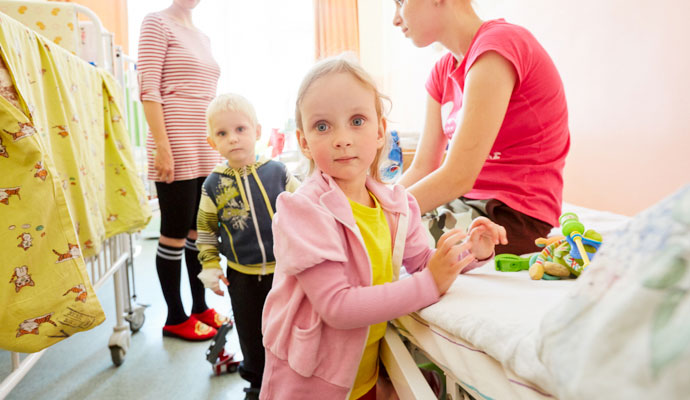Department of Anaesthesiology and Intensive Care №1
The Department of Anaesthesiology and Intensive Care №1 (with the group of extracorporeal circulation) of pediatric surgery deals with all kinds of anesthesia in children of different age groups, carrying out anesthesia for children with congenital heart defects, heart rhythm disorders, congenital malformations of the abdominal cavity, lungs, purulent inflammatory diseases of skin and subcutaneous tissue, planned and emergency operations on the heart and organs of the abdominal cavity.
The group of extracorporeal circulation is engaged in carrying out artificial circulation in children with congenital heart defects and respiratory organs of all age groups, providing renal replacement therapy (artificial kidney). Annually about 600 patients with congenital heart disease, about 5000 children with diseases of the abdominal cavity, lungs, skin and subcutaneous fat receive high-tech specialized care in our department.



Department staff
The group of extracorporeal circulation is engaged in carrying out artificial circulation in children with congenital heart defects and respiratory organs of all age groups, providing renal replacement therapy (artificial kidney).
Annually about 600 patients with congenital heart disease, about 5000 children with diseases of the abdominal cavity, lungs, skin and subcutaneous fat receive high-tech specialized care in our department.

A. ZAMAREEV
head of the department

O. KOZHEMYAKINA
anesthesiologist

E. TROFIMOVICH
anesthesiologist

D. GALENCHIK
anesthesiologist

S. PROHOROVA
anesthesiologist

T. VOLKOVA
anesthesiologist

N. BRUCHKOVSKY
anesthesiologist

Y. KOVALCHUK
anesthesiologist

Y. KLESSHENKO
head nurse
Department Services
Due to longstanding and successful work of the team, the clinic has accumulated a unique experience of intensive care of any complexity, including:
presurgical preparation
balanced anesthesia:
at operations on heart and lungs of abdominal cavity, skin and subcutaneously fatty tissue to children of all age groups taking into account individual features of the patients.
use of extracorporeal circulation methods:
ECMO, right-, left-, biventricular bypass.
use of 'artificial kidney', application of new methods of artificial ventilation:
non-invasive ventilation, oscillatory ventilation.
carrying out artificial circulation in conditions of
normo-, moderate and deep hypothermia in children of all age groups.
cardiovascular arrest, selective brachiocephalic perfusion
extracorporeal membrane oxygenation
mono-, biventricular bypass:
treatment and examination of patients with pulmonary hypertension of various etiologies.
